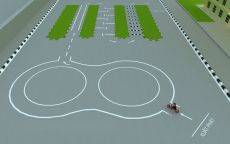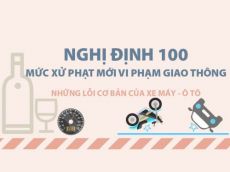570+ Câu trắc nghiệm Tiếng Anh ôn thi công chức, viên chức trình độ A1 có đáp án
Bộ 570+ câu trắc nghiệm Tiếng Anh trình độ A1 ôn thi công chức, viên chức có đáp án mới nhất được tracnghiem.net tổng hợp nhằm giúp các bạn có thêm tài liệu tham khảo, chuẩn bị thật tốt cho kì thi viên chức sắp đến. Để ôn tập hiệu quả các bạn có thể ôn theo từng phần trong bộ câu hỏi này bằng cách trả lời các câu hỏi và xem lại đáp án và lời giải chi tiết. Sau đó các bạn hãy chọn tạo ra đề ngẫu nhiên để kiểm tra lại kiến thức đã ôn.
Chọn hình thức trắc nghiệm (30 câu/30 phút)
Chọn phần
-
Câu 1:
The text is about
A desert is a hostile, potentially deadly environment for unprepared humans. In hot deserts, high temperatures cause rapid loss of water due to sweating, and the absence of water sources with which to replenish it can result in dehydration and death within a few days. In addition, unprotected humans are also at risk from heatstroke. Humans may also have to adapt to sandstorms in some deserts, not just in their adverse effects on respiratory systems and eyes, but also in their potentially harmful effects on equipment such as filters, vehicles and communication equipment. Sandstorms can last for hours, sometimes even days. Despite this, some cultures have made hot deserts 'their home for thousands of years, including the Bedouin, Tuareg tribe, and Pueblo people. Modern technology, including advanced irrigation systems, desalinization and air conditioning, has made deserts much more hospitable. In the United States and Israel for example, desert farming has found extensive use. In cold deserts, hypothermia and frostbite are the chief hazards, as well as dehydration in the absence of a source of heat to melt ice for drinking. Falling through pack-ice or surface ice layers into freezing water is a particular danger requiring emergency action to prevent rapid hypothermia. Starvation is also a hazard; in low temperatures the body requires much more food energy to maintain body heat and to move. As with hot deserts, some people such as the Inuit have adapted to the harsh conditions of cold deserts.
A. troubles that human beings have to face in a desert
B. desert storms and desert inhabitants
C. hot deserts and cold deserts in the United States
D. desert hospitality and environment
-
Câu 2:
Which is not a problem for an unprepared man in a hot desert?
A. Sandstorm
B. Loss of water
C. Irrigation
D. Heatstroke
-
Câu 3:
Sandstorms .
A. do no harm to machinery
B. have effects only on the eyes
C. never lasts more than one hour
D. have bad effects on both human beings and machinery
-
Câu 4:
Which sentence is true?
A. No one can survive in both hot and cold deserts.
B. Modern technology makes deserts more hospitable.
C. In the United States, all deserts are quite uninhabited.
D. There are no deserts in Israel.
-
Câu 5:
What is the writer trying to do in this text?
Rock Band
Two years ago, our 14-year-old son, Ben, asked us for a set of drums for his birthday. At first, we were very much against the idea because of the noise. 'It's better than watching television or playing computer games in my free time,' Ben argued, 'and it'll keep me out of trouble.' In the end we gave in. 'All right,' we said, 'but you must consider the rest of the family and the neighbours when youplay.' That was just the beginning. Because drums are not the easiest instruments to transport, the other members of Ben's band started appearing at out home with their guitars and other electrical instruments. And so, for several hours a week, the house shakes to the noise of their instruments and their teenage singing. At least Ben's hobby has been good for our health: whenever the band start practising, my husband and I go out for a long walk. And I must admit that, although their music may sound a little strange, they are a friendly and polite group of young men. I cannot judge their musical skill - after all I didn't expect my parents' generation to like the same music as I did when I was a teenager - but they do play regularly in local clubs for young people. Our main worry is that they won't spend enough time on their school work because of their musical activities, though this hasn't happened yet. I am always stressing to Ben how important his studies are. But one thing is certain - Ben was right: it has kept him out of trouble and he is never bored.
A. Complain about her son's friends
B. Give advice to teenagers
C. Describe her son's hobby
D. Compare herself with her parents
-
Câu 6:
Why did the writer give Ben the present he wanted?
A. She wanted to reward him for working hard.
B. He already had too many computer games.
C. She knew he would use it sensibly.
D. He persuaded her it would be a good idea.
-
Câu 7:
Why do the band always practise at Ben's house?
A. It is difficult for Ben to move his drums.
B. The neighbours don't mind the noise.
C. Ben's parents enjoy listening to them.
D. They can leave their equipment there.
-
Câu 8:
What does the writer say about the band members?
A. Their influence on her son worries her.
B. Their taste in music is different from hers.
C. They play their instruments well.
D. They avoid any contact with her.
-
Câu 9:
What might the writer say to her son?
A. Your teacher has just phoned. He wants to know why you weren't at school today.
B. When are you playing at the club next? Dad and I would love to come along again.
C. If you don't know what to do with your self, there's a good programme on the television in a few minutes.
D. Are you sure you've finished your homework? It's more important than band practice.
-
Câu 10:
What is the writer trying to do in the text?
Craigie Aitchision"
The painter Craighe Aitchison was born in Scotland. He came to London intending to study law, but went to art school instead. There he found the traditional drawing classes difficult, but still kept on painting. In his late twenties he was given money by the Italian government to study art, and became interested in early Italian artists, which show in some of his work. He loved the greens and browns of Italian fields and the clear light there, and wanted to put this light into his paintings. This led him to paint colours thinly one on top of another from light to dark, but he insists he's never sure the results will be. He says, 'It's a secret - because I don't know myself. I don't start by painting yellow, knowing I'm going to put anything on top. ' Like most talented people, Aitchision makes it sound easy. ' Anyone can do the colours - you can buy them. I simply notice what you put the colours next to.' Unlike some artists, he never does drawings before he starts a painting, as he feels that if he did, he might get bored and not do the painting afterwards. Instead, Aitchison changes his paintings many times before they are finished. This explains why his favourite models are people who don't ask to see their pictures while he's painting them. 'If I feel they're worried and want to look at the painting, I can't do it''. Since moving to London years ago, he has not felt part of the Scottish painting scene. He says he is not interested in following any tradition, but just paints the way he can. However, his work still influences young British painters.
A. Describe particular works by Craigie Aitchison
B. Teach readers how to paint like Craigie Aitchison
C. Introduce readers to the artist Craigie Aitchison
D. Explain how Craigie Aitchison has made money from painting
-
Câu 11:
What can the reader learn about Aitchison from the text?
A. He works in a different way from other artists.
B. He often gets bored with his paintings.
C. He improved his drawing by going to art school.
D. He did some paintings for the Italian government.
-
Câu 12:
What is the passage mainly about?
A. A doctor
B. A teacher
C. A dentist
D. An artist
-
Câu 13:
Aitchison prefers models who don't…......
A. keep talking to him while he's working
B. ask him about his strange method of working
C. worry about how long the work will take
D. feel anxious to see the work as it's developing
-
Câu 14:
What might a visitor at an exhibition say about Atchison's work?
A. I love his recent paintings of Scotland, which are very similar to a number of other Scottish painters.
B. You can still see the influence of his trip to Italy in some of these pictures.
C. You can tell he spent a lot of time drawing the picture before he started painting.
D. I wonder if his law training helps him at all, especially in the selling his work.
-
Câu 15:
What is the writer trying to do in the text?
The young achiever of the year
Kal Kaur Rai has always been interested in fashion and has just won the title of Young Achiever of the year at the Asian Business Awards. Ever since she was a child, she has drawn clothes and designed patterns. She never told her hard-working parents, who own a supermarket, that she wanted to turn her hobby into a career. She thought they expected her to go into a more established business, so she went to university to do a management degree. After university, she moved to London and worked in an advertising agency. She had to attend industry events but couldn't afford the designer clothes she liked. She started making skirts and tops for herself. When her friends saw her clothes, they asked her to make things for them. She then found a small shop in London willing to take her designs on a sale or return basis. They were very popular and nothing came back. This encouraged her to leave her advertising job , take out a £20,000 loan and begin her own women-wearlabel. Kal's parents were not angry about her career change and said they would support her, which really pleased her. Her clothes are now on sale in over 70 stores and her business has an income of over £500,000. Her clothes appear in fashion magazines, she designs for pop stars and she has just gained public recognition by winning this award. Her business has come a long way and she knows she is extremely lucky. 'What I do is my hobby - and I get paid for it! But remember, I've worked hard for this.'
A. Encourage fashion designers to make better business plans
B. Compare a job in fashion with with other choices of career
C. Give details of recent changes in the fashion industry
D. Explain how a woman set up a fashion business
-
Câu 16:
What does the reader learn about Kal's parents?
A. They wanted Kal to help them run the family business.
B. They did not realise that Kal wanted to work in fashion.
C. They insisted Kal should continue with her job in advertising.
D. They did not think Kal worked hard enough at university.
-
Câu 17:
Kal decided to borrow £20,000 when……
A. all her clothes in the London shop were sold.
B. her friends asked her to make clothes for them.
C. she lost her job at the advertising agency.
D. the fashion industry was in a period of growth.
-
Câu 18:
What does Kal say about her career?
A. She plans to open more stores.
B. She believes that she deserves her success.
C. She particularly enjoys designing for famous people.
D. She expects more people to buy her clothes after the award.
-
Câu 19:
What might Kal say now about her career?
A. My management degree has helped me more than anything else. It's so important that young people interested in fashion can deal with money.
B. I've learnt so much working for other fashion designers. Without this experience, I couldn't have started my own business.
C. Running a fashion business is a dream come true and my parents being happy with my choice are even more special.
D. Even when I was at university, my friends liked the clothes I made. This encouraged me to think about a career in fashion
-
Câu 20:
I _________ my English a lot since the last seminar.
A. improved
B. improve
C. have improved
D. has improved
-
Câu 21:
I don't like _________ milk.
A. a
B. the
C. an
D. No article needed.
-
Câu 22:
What type of reading is this?
DO YOU DRINK TOO MUCH COFFEE?
How much coffee is too much? Most doctors say one cup a day is more than enough. However, most people who work in offices drink two or more cups a day. Many drink coffee during breaks, at lunch, and on their way to and from work. On the other hand, most people don’t drink enough water. This is especially a problem for coffee drinkers. When people drink coffee, they don’t drink water. Most doctors agree that everyone should drink at least eight glasses of water a day.
A. A letter
B. A table
C. An article
D. A memo
-
Câu 23:
When do many people drink coffee?
A. During breaks
B. At lunch
C. On their way to work
D. All of them are correct.
-
Câu 24:
Not drinking enough water is a problem for ________.
A. coffee drinkers
B. doctors
C. officers
D. workers
-
Câu 25:
How much water should people drink every day?
A. Less than four glasses
B. Eight or more glasses
C. One glass for every cup of coffee
D. No more than two glasses
-
Câu 26:
A: _________ you like a cup of coffee? B: Yes, please
A. Are
B. Would
C. Want
D. Do
-
Câu 27:
The teacher told Jessey ____________.
A. stop talking
B. to stop talking
C. stops talking
D. stopped talking
-
Câu 28:
Jack asked me __________interested in football.
A. when had you born
B. when I was born
C. when were you born
D. when I had been born
-
Câu 29:
They talked ___________the book.
A. about
B. of
C. for
D. with
-
Câu 30:
I wonder __________.
A. where he has gone
B. has he gone where
C. where has he gone
D. he has gone where














